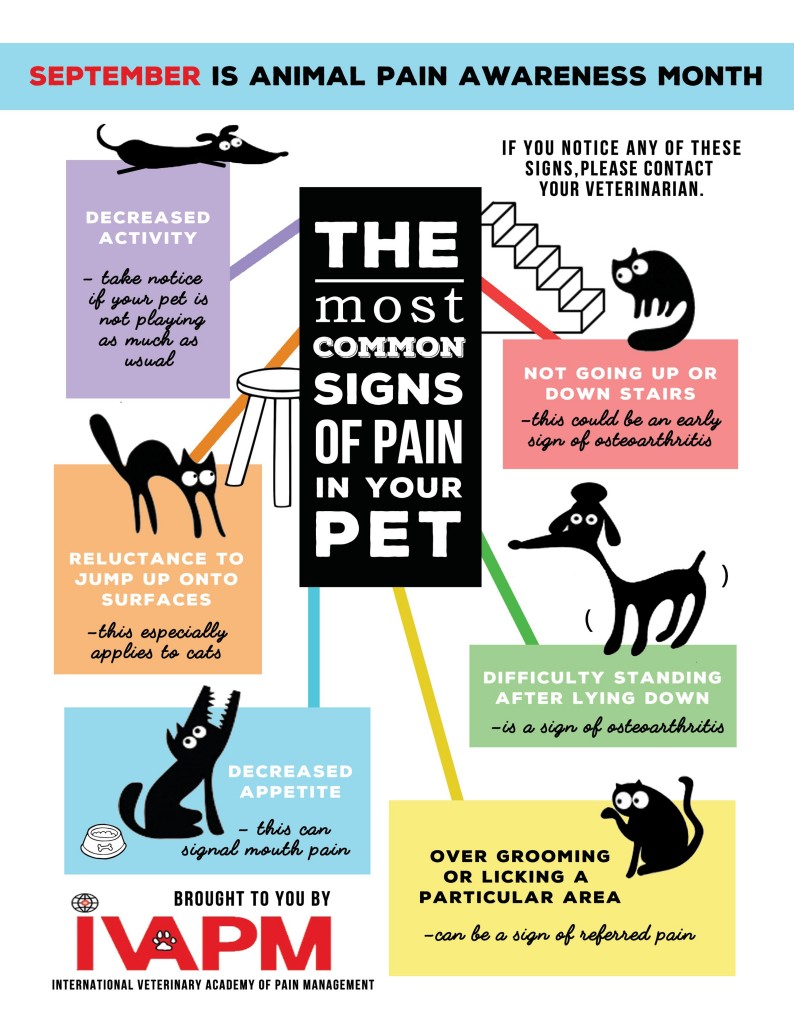The International Veterinary Academy of Pain Management (IVAPM) is excited to celebrate Animal Pain Awareness Month with veterinary professionals around the world in September 2016. In keeping with the IVAPM’s commitment to promote, enhance and advance pain management, this campaign is intended to raise owner awareness and recognition of both acute and chronic pain in animals.
 September was selected to coincide with human medicine’s Pain Awareness Month. During this annual campaign, IVAPM will encourage various organizations (clinics, veterinarians, technicians, veterinary industry, publications, and veterinary educators) to raise public awareness about pain and pain management as it pertains to veterinary patients.
September was selected to coincide with human medicine’s Pain Awareness Month. During this annual campaign, IVAPM will encourage various organizations (clinics, veterinarians, technicians, veterinary industry, publications, and veterinary educators) to raise public awareness about pain and pain management as it pertains to veterinary patients.
The theme “The Most Common Signs of Pain in Your Pet” will help engage owners in understanding that while we are different species, we ALL process and feel pain similarly. If something is thought to cause pain in humans it will likely produce pain in animals as well. IVAPM hopes to encourage owners to take an active role in recognizing the signs of pain in animals and seeking veterinary care.
September is the perfect month to increase animal pain awareness. Join us in the movement to improve pain management in veterinary medicine!
What if you couldn’t tell your doctor that you were in pain? Animals suffer from pain just like we do. Pain comes in many forms: surgical pain, arthritis and cancer, just to name a few. Acute pain is obvious and distressing. Chronic pain can be subtle, and masked as “getting old” or “slowing down.” Age is not a disease, but pain is. There are many options to treat the various causes of pain in animals including pain medications, physical rehabilitation and acupuncture.
Common Signs of Pain in Dogs
- Decreased social interaction
- Anxious expression
- Submissive behavior
- Refusal to move
- Whimpering
- Howling
- Growling
- Guarding behavior
- Aggression; biting
- Decreased appetite
- Self-mutilation (chewing)
- Changes in posture
Common Signs of Pain in Cats
- Reduced activity
- Loss of appetite
- Quiet/loss of curiosity
- Changes in urinary/defecation habits
- Hiding
- Hissing or spitting
- Lack of agility/jumping
- Excessive licking/grooming
- Stiff posture/gait
- Guarding behavior
- Stops grooming/matted fur
- Tail flicking
- Weight loss
Source: IVAPM

